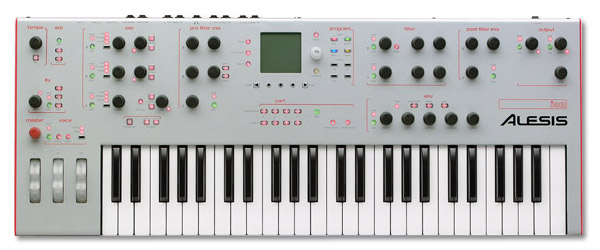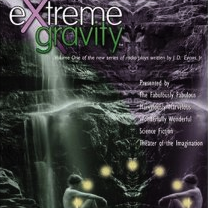Timoty wrote:The real difference is that if you score to a film, you watch the scene and write to what is happening during it. If a character has a certain theme you might pull it in when they appear or time the music to their footsteps for dramatic effect. A good example of this is anything by John Williams.
So Hans Zimmer, while a great writer, doesn't score movies he just does soundtrack work!
Both methods are valid, Notion with video would let us conduct to the scenes for genuine scoring
Excellent!
This is the strategy I use when I am doing the music for my science fiction radio plays, although it is more a matter of composing the music to the story and dialogue, since at present I have not started work on the motion picture version, although I have been pondering the idea, along with the pondering how to get a venture capitalist or a bright person at a Hollywood studio to fund it, but so what . . .
So what!
For reference, I never took the time to find a formal definition of "film score", because the only strategy which made (and continues to make) intuitive sense to me was (and is) based on watching a film while listening to the dialogue and sound effects, and in fact I do not think that there is any other way to do it, really . . .
Really!
Additionally, since my primary perspective is based on decades of "play by ear", I need the aural and visual cues to "hear" in my mind what makes sense for the music to be doing . . .
Doing film scoring is something I have been pondering for a long time, and while from one perspective it certainly can appear to be a virtually impossible thing to do, the more practical perspective here in the sound isolation studio is based on the facts (a) that music pretty much appears in my mind automagically and (b) that I know enough about music notation, music theory, mathematics, psychology, and so forth and so on to know how to do vastly complex stuff . . .
And now that I have made reasonably good sense of music notation, VSTi virtual instruments, NOTION 3, arranging, producing, mixing, and mastering, the strategy that comes to mind at the moment for doing film scoring begins with watching the film while listening to the dialogue and the sound effects (if possible) and then one drum, cymbal, and Latin percussion instrument at a time inputting individual notes via music notation when something interesting happens, which in part is based on Joseph Schillinger's System of Musical Composition (SoMC) principle that rhythm is vastly important, which was explained best by George and Ira Gershwin over half a century ago . . .
I got rhythm, I got music . . .
"I Got Rhythm" (George and Ira Gershwin) -- YouTube music video
[NOTE: Starting with the drumkit and Latin percussion instruments does not imply that there actually will be drums and Latin percussion instruments, but it is a good way to get a sense of what needs to happen with respect to rhythm and motion, and at minimum there needs to be a "click" track or whatever one wants to call it . . . ]
And I agree about John Williams, where my perspective is that even if someone were tone deaf and had no sense of rhythm, after watching a film that John Williams scored they would be able to hum or to whistle something which was at least ballpark with respect to a theme . . .
I also agree about the importance of being able to conduct, since there is limit to what one can do when everything is evenly divisible by two, even when you can work at tick granularity, which is fabulous . . .
Fabulous!
P. S. This is an excerpt from the first volume of "Extreme Gravity", and it was done approximately seven years ago around the time when I decided to get an Alesis ION Analog Modeling Synthesizer to make "outer space sounds", which was a few weeks before I discovered two vastly important things, both of which were a bit of a surprise, really . . .

(1) For some unknown reason all the white keys on the Alesis ION Analog Modeling Synthesizer sounded good with the electric guitar stuff . . .
(2) The patently surreal experiment which spanned approximately two decades and was focused on teaching myself by the sheer power of my mind how to play piano without actually playing a piano--instead only thinking about it diligently--was successful . . .
[NOTE: The strategy I used at the time was first to record the voice-over, followed by composing and playing the Stratocaster electric guitar stuff in real-time on the fly on the first take and then adding the Alesis ION Analog Modeling Synthesizer outer space sounds, in part because this was during the time when I thought it was cool to do stuff only once, which was another patently surreal but vastly enlightening experiment. This also was several years before I discovered IK Multimedia VSTi virtual instruments and NOTION 3, as well as yet another useful bit of information, which is that due to being in a liturgical boys choir as a child I know treble clef music notation, since as a child I could sight-sing Bach, Beethoven, Mozart, and so forth but only as a soprano, which led to quite a bit of confusion in subsequent years, because I did not realize in any immediately conscious way that I was a baritone until about a year ago, which explained a lot of things that had been puzzling me here in the sound isolation studio. And for reference, I make everything a treble clef in NOTION 3, which is awesome, since from my perspective (a) there are 12 notes and 8 or so octaves and (b) the "octave" aspect just determines whether the note is low, high, or whatever, which makes working productively with music notation considerably easier when you think about it for a while, especially when your perspective primarily is "play by ear" . . . ]

Exerpt from Extreme Gravity Volume One™: Another World (The Fabulously Fabulous, Marvelously Marvelous, Wonderfully Wonderful Science Fiction Theater of the Imagination™) -- MP3 (9.9MB, 298-kbps [VBR], approximately 4 minutes and 35 seconds)
Really!
